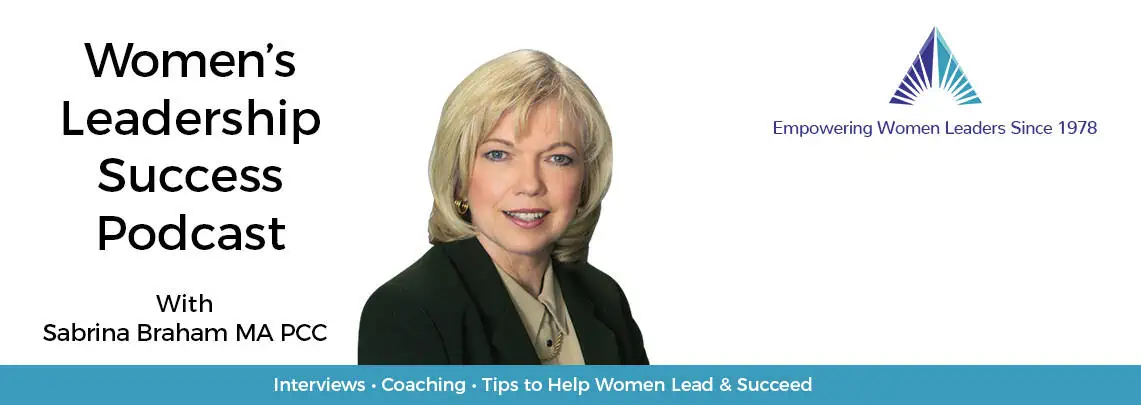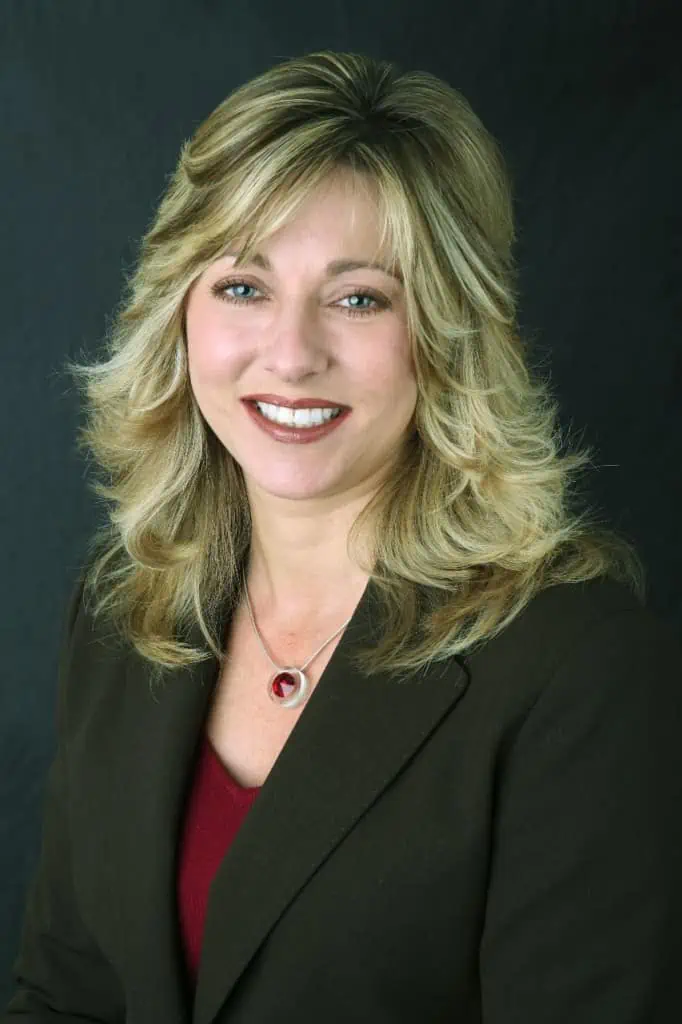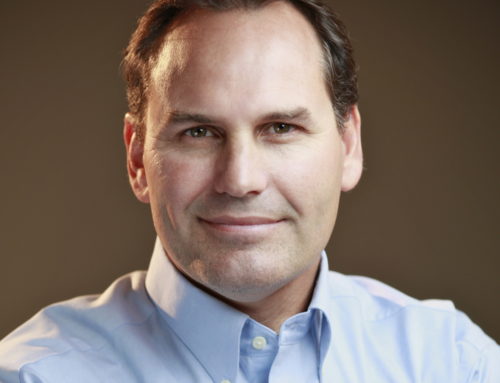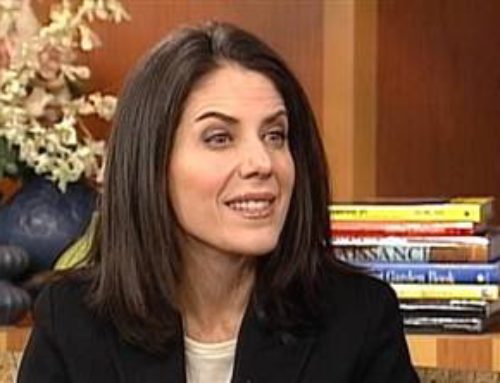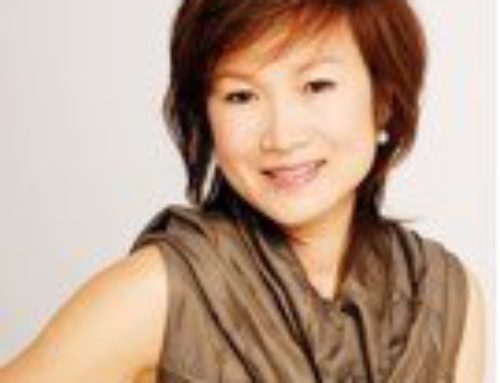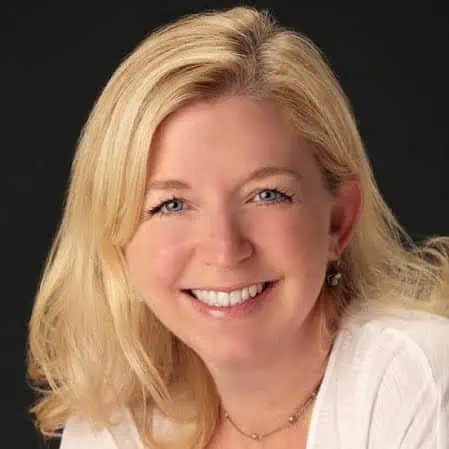Money Management for Women
Why Do Women Worry About Money?
Sabrina Braham: This is Sabrina Braham with Sabrina Braham.com. In this segment of Women’s Leadership Podcast we will be discussing how 90 percent of all women feel insecure financially; and today we’re going to talk about why and what you can do about it. Our guest today is Renee Amochaev of Wachovia Securities. Welcome, Renee.
Listen to the Women’s Leadership Success #2 interview on money management here:
Renee Amochaev: Hi, Sabrina.
Sabrina Braham: Can you tell us a little bit about your background and how you became really interested in working with women financially?
Renee Amochaev: Sure. Well I guess probably the best way to start is the fact that I am a woman and I do earn money and I have been managing my own money since I was probably about 13 years old. I had the very good fortune of having a mother that believed that a woman should be independently financially secure, and she taught me this at a really young age and gave me that responsibility at a really young age. And as a result, that led to a career in finance, and I’ve been a financial advisor since the late ’90s working with some of Wall Street’s largest firms, Merrill Lynch, Smith Barney, and currently Wachovia Securities.
WHY ARE WOMEN INSECURE FINANCIALLY?
Sabrina Braham: And tell us a little bit about what makes women so insecure financially? I was really surprised to hear that 90 percent of women feel that way.
Renee Amochaev: It’s an interesting question and I’ve been trying to understand that myself because, to be quite honest with you, I really don’t think that women should feel financially insecure. I think that what a lot of it has to do with is women feel that they maybe don’t understand financial investment information and as a result of that they may have some fear about actually pursuing investments. And I just feel that women certainly have the skill that it requires to be able to be good investors; they just need some place, probably, where they can go to ask those questions and get information in an environment that feels safe.
HOW WOMEN START BEING FINANCIALLY SUCCESSFUL
Sabrina Braham: So how do women start? What do women need to start doing in order to get that information?
Renee Amochaev: Well I think one of the things that women probably need to understand right up front is that women are really in a unique position today, more so than they ever have been in the past. When you take a look at the statistics that are out there, the financial power of women in the United States is actually pretty formidable. About 62 percent of women earn half or more of their family’s income, and over 80 percent of women control their family budget.
I thought it was really interesting that I recently read a statistic that about 40 percent of the people with incomes of more than $500,000 are women. And when you take a look at how women are actually outpacing men in terms of income growth, I have to stop and think that the fear of maybe not having enough money is not necessarily that rational anymore, when you take a look at what’s going on in our society today.
ARE YOU GOING PAYCHECK TO PAYCHECK?
Sabrina Braham: That makes a lot of sense. And at the same time what I’ve found as an executive coach, that whether women are making $10 an hour or $300,000 a year, it seems like there’s so many women that go paycheck to paycheck and don’t have a clear plan of how to create wealth or assets, or even prepare for their retirement.
Renee Amochaev: Absolutely. And I see that quite often in my practice. A lot of people will come to me thinking that my role is to help them not only make investment decisions, but decipher that information. And I actually see my role as something that’s much more complete than that. I really think that in order for women to be good investors they have to have an overall investment strategy that’s going to emphasize their total asset management.
And so what that means is they really need to put together a comprehensive financial plan that starts with a budget. You have to be able to have cash flow in order to be able to save. You have to be utilizing your assets and your liabilities, maximizing that in a way that’s going to benefit you and not hurt you. And it’s really a matter of just simply sitting down and taking a look at your overall picture, what your debt is, what your assets are, how those things are allocated, and from there we can form a plan that will help you begin to save. But at the very beginning it all comes down to cash flow and understanding what your budget is.
Money Management: HOW WOMEN LEARN TO MANAGE YOUR MONEY
Sabrina Braham: So what you’re saying is, one of the first steps on smart money management is you’ve got to take a look and find out how you’re spending your money.
Renee Amochaev: Exactly. You need to see do you have additional monies every month to be contributing to an IRA? Certainly people can contribute to an IRA on an annual basis, but I really recommend that women contribute on a monthly basis; sort of like paying a bill, where they’re putting that money right away into some sort of retirement account, whether it’s their individual IRA or something that’s through an employer. Those are great ways to save money and to be constantly adding to those funds.
Sabrina Braham: That really makes a lot of sense. I know so many women that don’t seem to understand where to spend their money, buy a new BMW, the house payment is so expensive they can’t really afford it, so what’s a good way to decide if one should get the new car or fund the IRA?
Renee Amochaev: Well I always look at it as, what is the purchase going to do for me in the long run? Certainly buying a home or something like that is going to provide you with a benefit over a long period of time. Spending hundreds of dollars on clothes or Manolo shoes, how long is that benefit going to last you? And maybe if you spent half of that and put money into a savings account, that would benefit you in the long run. The longer time horizon that you have to save, the better off you will be. And I strongly encourage women that as soon as they enter their working ages to open an IRA and contribute to that IRA at that time.
Sabrina Braham: You said that twice and I think it’s really, really good advice. You had mentioned to me before the opportunity costs of money. Can you talk a little bit about that?
Renee Amochaev: Let’s say, for example, you are a person that carries, let’s say, $25,000 in credit card debt. You’re making your monthly interest payments and your interest rate is, let’s say, at over 19 percent. And in a savings account at the bank you’ve got $30,000 or $40,000 in an account that’s maybe earning 2 or 3 percent interest.
People don’t understand that by carrying that debt for a long term, the amount that you’re putting towards your principle and actually paying off that debt is going to take a number of years and it’s going to cost you a great deal of money just to carry that debt; when in your savings account you have the money to pay off that debt and you can then begin to start saving the money that you would have been paying towards that.
Sabrina Braham: That really makes a lot of sense. How should one use a credit card?
Renee Amochaev: Well I actually am a strong believer in paying off that credit card on a monthly basis. Not everybody can do that, but I strongly encourage people that if they can spend within their means on a monthly basis they will be much better off in the long run. It may mean that they can’t buy a pair of jeans that month, or it may mean that they have to cut back on a massage or something like that. But look in the future 20, 30 years when women are expected to outlive their husbands. They tend to not remarry. The average age of widowhood is actually quite young; it’s in the late 50s.
So my question that I pose to women is, “Do you want to be taken care of later on down the road? If you make some adjustments now you’ll be able to do that for yourself.”
Sabrina Braham: That really makes a lot of sense. I’ve got a couple of people that I’m coaching right now, and that first step of contacting someone seems to be so hard. How do they make that first step? What are ways to begin to educate themselves so that they know what to do?
ATTENTION CAREER WOMEN AND ENTREPRENEURS
EDUCATE YOURSELF TO INCREASE YOUR FINANCIAL SUCCESS
Renee Amochaev: The very first thing that I want to tell women is that statistically we’re looking at probably 9 out of 10 women will be solely responsible for their financial lives at some point in their life. So the idea of Prince Charming coming along to take care of you is probably not a good bet.
And what you can do is just begin to educate yourself by picking up some great books that are out there. There are certainly plenty of wonderful books geared towards women out in the marketplace that are about money. There are great websites out there as well to help women take a look at their financial plan. And then certainly if you are interested in having somebody to speak with, someone like myself, a professional financial advisor is also a really great resource.
HOW TO PICK A GREAT FINANCIAL ADVISOR FOR WOMEN
Sabrina Braham: And how does one know if somebody’s a really good professional financial advisor?
Renee Amochaev: Well I always suggest that when you go to interview a financial advisor you want to talk to them, obviously, about their experience and their background and their education; that’s always a good place to start. But there is a website called The National Association of Security Dealers and at that website, HYPERLINK “http://www.nasd.com” www.nasd.com, there is a section in there called “Broker Check.” And you can go into there and look up any broker or brokerage firm for the background on the broker as well as any complaints that may have been filed against the broker in which monetary damages over $10,000 were awarded, and that would be indicated on that website. That would give you some idea if there were any issues that that broker has had in the past.
Sabrina Braham: And what’s Wachovia’s website?
Renee Amochaev: Wachovia’s website is
Sabrina Braham: Great. And are there’s specific sections for women?
Renee Amochaev: Certainly. There are some great tips in there to help women look at different financial planning tools. We have a HYPERLINK “http://www.Wachavia.com/women” Wachovia.com/women section that will help women with small businesses. There’s certainly diversity issues. There’s a tremendous amount of information on the website as well.
Sabrina Braham: I really appreciate your time and everything you’ve been saying. And what I’ve found is when women participate in managing their money, it really changes their confidence, besides the outcome in terms of their life financially. I wonder if you could leave us with some encouragement for women to get on the move and do something to change what’s going on in their lives.
Renee Amochaev: Absolutely, Sabrina. I absolutely believe that women have what it takes to take control of their financial lives. One of the best ways that I can put it is if you think about, as a woman, the things that you do and the decisions that you make on a daily basis with your purchasing dollar, for example when you have to go to the grocery store and you have to think about all the things that you need to buy and all the different categories, the meat, the fruits, the this, the that, and how you’re going to spend your money and you’re going to allocate that money, those same skills, the skills that we use every single day in managing our households and our children and our family budget, are applicable to investments. You just need to learn the terminology and understand that it’s the same concept of diversifying and spreading out that money. Working with a professional advisor provides you with an opportunity to talk to somebody and get educated.
FIVE EASY STEPS WOMEN CAN TAKE to CONTROL YOUR FINANCIAL LIFE
What I really think women need to do most of all, there are probably about five steps that every woman can start to take right now to take control of their life.
Sabrina Braham: What would that be?
Renee Amochaev: The first one would be to establish good credit in your own name. Get your own credit card. Get a checking account or a savings account or a tax-deferred retirement account. Put money and establish credit in your own name.
If you have an employer that offers a tax-deferred retirement plan, absolutely contribute in that. Many employers match your dollars that you set aside. So what can happen with that over time is that will be compounded growth, and it also decreases your current tax liabilities.
The third thing is invest regularly, and that was what I was saying earlier. When you sit down to pay your monthly bills, set up that you put $100, $200, $1000, whatever is in line with the cash flow that you have, put money into an account regularly, automatically, monthly.
The next thing I think is to really create a total financial strategy. You should have savings. You should have your investments allocated between different asset classes, real estate, stocks, bonds, cash, CDs, so on and so forth.
Then the thing that I think is most important is to regularly monitor those investments and rebalance them as necessary. And again, that’s where a professional advisor can come in handy. And I think that’s probably the fifth thing is if you don’t feel that it’s something that you can take on your own, call someone that is a professional advisor and they will help you work through a plan and monitor that throughout the rest of your life.
Sabrina Braham: Wow. This is incredible. I really appreciate you sharing this with us. I know we’re going to get some other questions and I’m wondering if you might be available to come back and talk to us again.
Renee Amochaev: Absolutely. There’s a tremendous amount of information out there to help women. As I said, it is an amazing time for women; we are coming into controlling a tremendous amount of wealth. For example, within the next five years women are expected to control over $14 trillion and that’s money that’s coming through inheritance and divorce and marriage and work. So I think it’s a great time for women and the younger that you can start, the better off you will be.
Sabrina Braham: That’s great. Thank you so much, Renee.
Renee Amochaev: Thank you, Sabrina.
Sabrina Braham: Good-bye.
Renee Amochaev: Bye-bye.
Thank you for joining your host, Sabrina Braham, on another Women’s Leadership Podcast. If you have questions or comments, you can email her at HYPERLINK “mailto:Sabrina@SabrinaBraham.com” Sabrina@SabrinaBraham.com.
Since 1989 Sabrina and her team have helped hundreds of women managers, business leaders, and entrepreneurs with valuable trainings, articles, books, and executive coaching. For additional tips, interviews, and free access to Great Leaders Today mini-course, visit HYPERLINK “http://www.WomensLeadershipSuccess.com” www.WomensLeadershipSuccess.com.
Why Do Women Worry About Money? – Podcast #2
Are you ready to break through your limitations in your career, leadership and life?
Would you like to move to a more powerful level? Then here are 3 things you can start with right now:
Here are 3 things you can start with now:
1. Call or email me for executive coaching, consulting or training. (Use Contact Form Here)
2. For a free career and leadership assessment from me, Go to Career Development Quiz .Com
3. Help me spread the word to women just like you, tap into the insights you are getting from this show by giving me a review in Apple Podcasts (iTunes), Spotify, Castbox, Podchaser, Podcast Addict & sharing this show in your favorite social media.
